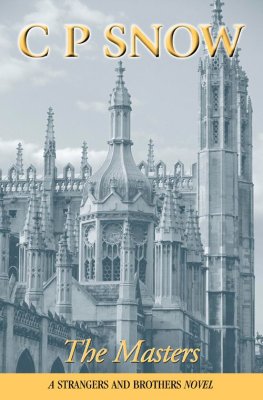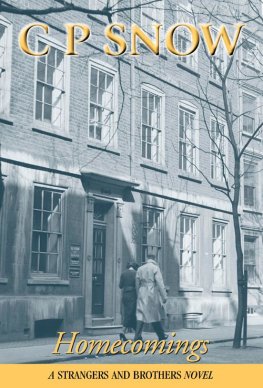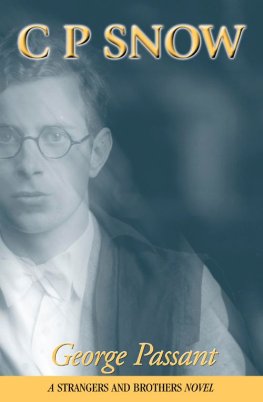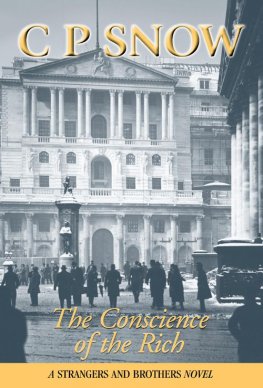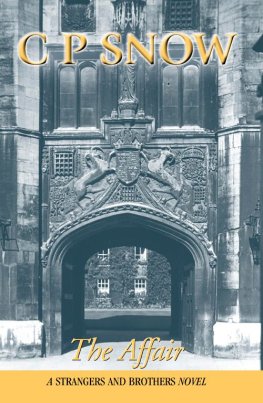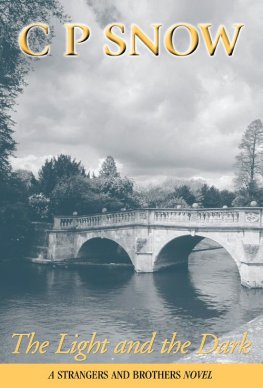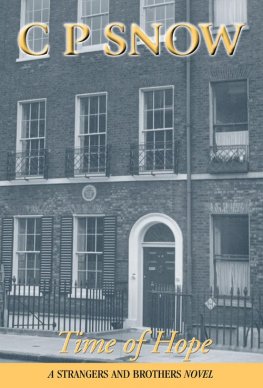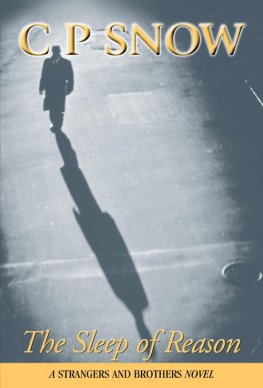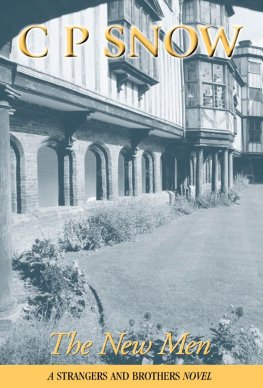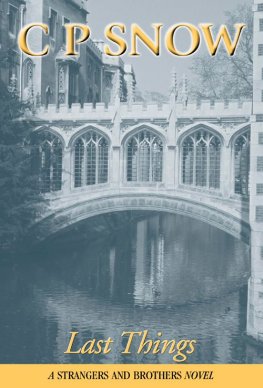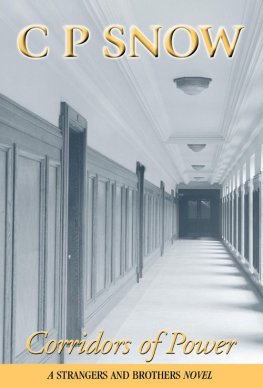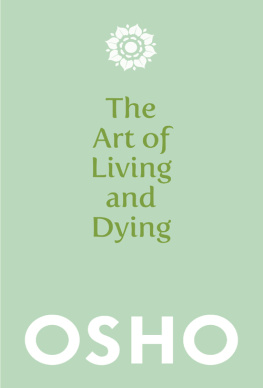Charles Snow - The Masters
Here you can read online Charles Snow - The Masters full text of the book (entire story) in english for free. Download pdf and epub, get meaning, cover and reviews about this ebook. year: 2012, publisher: House of Stratus, genre: Prose. Description of the work, (preface) as well as reviews are available. Best literature library LitArk.com created for fans of good reading and offers a wide selection of genres:
Romance novel
Science fiction
Adventure
Detective
Science
History
Home and family
Prose
Art
Politics
Computer
Non-fiction
Religion
Business
Children
Humor
Choose a favorite category and find really read worthwhile books. Enjoy immersion in the world of imagination, feel the emotions of the characters or learn something new for yourself, make an fascinating discovery.
- Book:The Masters
- Author:
- Publisher:House of Stratus
- Genre:
- Year:2012
- ISBN:9780755120048
- Rating:4 / 5
- Favourites:Add to favourites
- Your mark:
- 80
- 1
- 2
- 3
- 4
- 5
The Masters: summary, description and annotation
We offer to read an annotation, description, summary or preface (depends on what the author of the book "The Masters" wrote himself). If you haven't found the necessary information about the book — write in the comments, we will try to find it.
The Masters — read online for free the complete book (whole text) full work
Below is the text of the book, divided by pages. System saving the place of the last page read, allows you to conveniently read the book "The Masters" online for free, without having to search again every time where you left off. Put a bookmark, and you can go to the page where you finished reading at any time.
Font size:
Interval:
Bookmark:
C.P. Snow
The Masters
About the Author

Charles Percy Snow was born in Leicester, on 15 October 1905. He was educated from age eleven at Alderman Newtons School for boys where he excelled in most subjects, enjoying a reputation for an astounding memory and also developed a lifelong love of cricket. In 1923 he became an external student in science of London University, as the local college he attended in Leicester had no science department. At the same time he read widely and gained practical experience by working as a laboratory assistant at Newtons to gain the necessary practical experience needed.
Having achieved a first class degree, followed by a Master of Science he won a studentship in 1928 which he used to research at the famous Cavendish Laboratory in Cambridge. There, he went on to become a Fellow of Christs College, Cambridge, in 1930 where he also served as a tutor, but his position became increasingly titular as he branched into other areas of activity. In 1934, he began to publish scientific articles in Nature, and then The Spectator before becoming editor of the journal Discovery in 1937. However, he was also writing fiction during this period, with his first novel Death Under Sail published in 1932, and in 1940 Strangers and Brothers was published. This was the first of eleven novels in the series and was later renamed George Passant when Strangers and Brothers was used to denote the series itself.
Discovery became a casualty of the war, closing in 1940. However, by this time Snow was already involved with the Royal Society, who had organised a group to specifically use British scientific talent operating under the auspices of the Ministry of Labour. He served as the Ministrys technical director from 1940 to 1944. After the war, he became a civil service commissioner responsible for recruiting scientists to work for the government. He also returned to writing, continuing the Strangers and Brothers series of novels. The Light and the Dark was published in 1947, followed by Time of Hope in 1949, and perhaps the most famous and popular of them all, The Masters, in 1951. He planned to finish the cycle within five years, but the final novel Last Things wasnt published until 1970.
He married the novelist Pamela Hansford Johnson in 1950 and they had one son, Philip, in 1952. Snow was knighted in 1957 and became a life peer in 1964, taking the title Baron Snow of the City Leicester. He also joined Harold Wilsons first government as Parliamentary Secretary to the new Minister of Technology. When the department ceased to exist in 1966 he became a vociferous back-bencher in the House of Lords.
After finishing the Strangers and Brothers series, Snow continued writing both fiction and non-fiction. His last work of fiction was A Coat of Vanish, published in 1978. His non-fiction included a short life of Trollope published in 1974 and another, published posthumously in 1981, The Physicists: a Generation that Changed the World. He was also inundated with lecturing requests and offers of honorary doctorates. In 1961, he became Rector of St. Andrews University and for ten years also wrote influential weekly reviews for the Financial Times.
In these later years, Snow suffered from poor health although he continued to travel and lecture. He also remained active as a writer and critic until hospitalized on 1 July 1980. He died later that day of a perforated ulcer.
Mr Snow has established himself, on his own chosen ground, in an eminent and conspicuous position among contemporary English novelists New Statesman
Dedication
In memory of
G H Hardy
Authors Note
I have not given a name to the college in this story; I have never liked geographical inventions such as Christminster, and have avoided them through the whole sequence of Lewis Eliot novels.
This fictional college stands upon an existing site, and its topography is similar to that of an existing college, though some of the details are different. That is the end, however, of my reference to a real institution. The history (which I have sketched in an appendix, in the hope that it may be interesting to some unfamiliar with Cambridge) has no factual connection with any real college, though the generalizations are as true as I can make them. The people have been composed from many sources; and, to the best of my belief, there has been no actual election in Cambridge or Oxford in recent times which followed the course of this imaginary one. There is a tradition of a last-minute change of fortune early in the century, and a well-authenticated one in Mark Pattisons Memoirs. It was G H Hardy who first drew my attention to the latter source, when I was originally contemplating this theme. To his memory I dedicate this book, in love and reverence.
CPSPart One
A Light In The Lodge
1: News after a Medical Examination
The snow had only just stopped, and in the court below my rooms all sounds were dulled. There were few sounds to hear, for it was early in January, and the college was empty and quiet; I could just make out the footsteps of the porter, as he passed beneath the window on his last round of the night. Now and again his keys clinked, and the clink reached me after the pad of his footsteps had been lost in the snow.
I had drawn my curtains early that evening and not moved out. The kitchens had sent up a meal, and I had eaten it as I read by the fire. The fire had been kept high and bright all day; though it was nearly ten oclock now, I stoked it again, shovelling coal up the back of the chimney, throwing it on so it would burn for hours. It was scorchingly hot in front of the fire, and warm, cosy, shielded, in the zone of the two armchairs and the sofa which formed an island of comfort round the fireplace. Outside that zone, as one went towards the walls of the lofty medieval room, the draughts were bitter. In a blaze of firelight, which shone into the sombre corners, the panelling on the walls glowed softly, almost rosily, but no warmth reached as far. So that, on a night like this, one came to treat most of the room as the open air, and hurried back to the cosy island in front of the fireplace, the pool of light from the reading lamp on the mantelpiece, the radiance which was more pleasant because of the cold air which one had just escaped.
I was comfortable in my armchair, relaxed and content. There was no need to move. I was reading so intently that I did not notice the steps on the staircase, until there came a quick repeated knock on my door, and Jago came in.
Thank the Lord Ive found you, he said. Im glad youre in!
Outside, on the landing, he kicked the snow from his shoes and then came back to the armchair opposite mine. He was still wearing his gown, and I guessed that they had sat a long time in the combination room. He apologized for disturbing me. He apologized too much, for a man who was often so easy.
But sometimes he found the first moments of a meeting difficult; that was true with everyone he met, certainly with me, though we liked each other. I had got used to his excessive apologies and his over-cordial greetings. He made them that night, though he was excited, though he was grave and tense with his news.
He was a man of fifty, and some, seeing that he had gone both bald and grey, thought he looked older. But the first physical impression was deceptive. He was tall and thick about the body, with something of a paunch, but he was also small-boned, active, light on his feet. In the same way, his head was massive, his forehead high and broad between the fringes of fair hair; but no ones face changed its expression quicker, and his smile was brilliant. Behind the thick lenses, his eyes were small and intensely bright, the eyes of a young and lively man. At a first glance, people might think he looked a senator. It did not take them long to discover how mercurial he was. His temper was as quick as his smile; in everything he did his nerves seemed on the surface. In fact, people forgot all about the senator and began to complain that his sympathy and emotion flowed too easily. Many of them disliked his love of display. Yet they were affected by the depth of his feeling. Nearly everyone recognized that, though it took some insight to perceive that he was not only a man of deep feeling, but also one of passionate pride.
Font size:
Interval:
Bookmark:
Similar books «The Masters»
Look at similar books to The Masters. We have selected literature similar in name and meaning in the hope of providing readers with more options to find new, interesting, not yet read works.
Discussion, reviews of the book The Masters and just readers' own opinions. Leave your comments, write what you think about the work, its meaning or the main characters. Specify what exactly you liked and what you didn't like, and why you think so.

